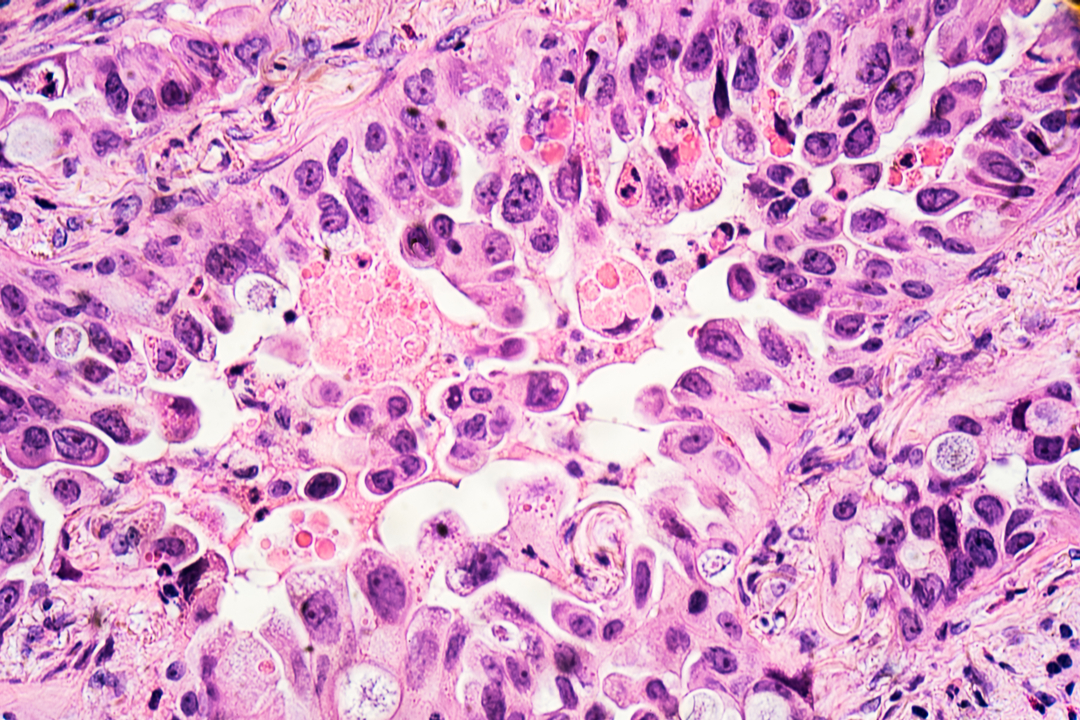Our Technology.
Metabolic profiling is a powerful strategy for investigating the low molecular weight (bio)chemicals (metabolites) present in the metabolome of a cell, tissue, or organism.
Metabolomic Diagnostics
Technology Overview
We use LC-MSMS to evaluate multiple biomarker candidates in one run, leveraging the multiplexing capabilities of LC-MSMS platforms. Thus facilitating translation to novel IVD suited for risk screening in the clinical laboratory.
Our technology combines the biomarker multiplexing capabilities of Mass Spectrometry with the company’s own informatics and statistics solutions to deliver diagnostic innovation.
We operate at the interface of translational research and commercialization. At all times, our multidisciplinary team is actively engaged with members of the clinical research community, manufacturers of mass spectrometry technology and clinical laboratories so that our mass spectrometry-based diagnostic solutions are fit-for-purpose.
Metabolomic Diagnostics own diagnostic programs are within women’s health and more specifically in prenatal health.
Our expertise is also regularly called upon to contribute to international efforts for the creation of novel diagnostics in other fields
The company’s vision is to develop a portfolio of diagnostic solutions for pregnancy risk for the “great obstetrical syndromes”. These are complications of pregnancy that arise when the complex and highly concerted interactions formed in pregnancy between mother, baby and the environment are disturbed in some way. This can lead to pregnancy complications like preeclampsia, gestational diabetes, preterm birth, and in-uterine growth restriction, which all have the potential to severely impact the well-being of mother and child.
To deliver on our vision, our R&D team has developed a suite of translational research workflows and data analysis tools to combine promising biomarker leads with pregnant women’s individual pregnancy characteristics into novel and personalized risk prediction solutions.
In collaboration with leading clinical researchers worldwide, Metabolomic Diagnostics’ team have used mass spectrometry-based workflows to analyse thousands of pregnancy samples, which allows us to verify a panel of biomarkers relevant for predicting preeclampsia risk. Our team is already working on similar solutions for some of the other great obstetrical syndromes.
Our Technology in Action
We operate at the interface of translational research and commercialization. At all times, our multidisciplinary team is actively engaged with members of the clinical research community, manufacturers of mass spectrometry technology and clinical laboratories

M-Scout
M-SCOUT integrates a multitude of essential building blocks necessary to successfully identify, quantify and select, combinations of metabolite biomarkers relevant to a certain condition.
M-SCOUT, is our proprietary LC-MS/MS based translational research platform.
- A translational biomarker pipeline for the evaluation of large lists of candidate metabolite biomarkers in large sample sets.
- An engine to identify biomarker panels for IVD prototyping.
- M-SCOUT integrates an in-house developed analytical workflow with a growing library of biomarker assays and a growing collection of bio-statistical tools.
(Our translational know-how is easily transferrable, for example a COVID diagnostics proof-of-concept was delivered in house in 6 weeks in early 2020) M-SCOUT integrates a multitude of essential building blocks necessary to successfully identify, quantify and select, combinations of metabolite biomarkers relevant to a certain condition. In brief, M-Scout can analyse a comprehensive library of metabolites (10-100) which have been putatively identified to be relevant to a disease, in minute amounts of sample. The combination of metabolites measured by M-SCOUT can be updated very efficiently depending on the application.
M-SCOUT is then typically applied to analyse the levels of the targeted metabolites in a collection of biobanked samples. The resulting data sets are then processed by a dedicated and proprietary bioinformatics pipeline. In addition to generating high quality metrics this pipeline is geared to identify within the metabolite library measured, those sets of metabolites which are relevant to the disease under study. As such it has applications beyond just preeclampsia and other pregnancy related research.

PrePsia
PrePsia is a prototype screening test, which identifies in early pregnancy, those women at increased risk of developing preeclampsia later in their pregnancies (Preeclampsia – What is preeclampsia, its causes and symptoms).
- PrePsia is a prototype clinical assay workflow for a panel of metabolite biomarkers which can predict pregnancy complications early in pregnancy.
PrePsia is a prototype screening test, which identifies in early pregnancy, those women at increased risk of developing preeclampsia later in their pregnancies. PrePsia will revolutionise prenatal care globally by enabling healthcare providers to customize pregnancy care to a woman’s personal risk profile, PrePsia will lead to better pregnancy outcomes for mums and babies.

Preeclampsia
Preeclampsia is a disorder specific to pregnancy, which occurs in 5% of 1st time pregnancies. The condition originates in the placenta and manifests as new-onset hypertension and proteinuria after 20 weeks’ gestation.
Preeclampsia is a disorder specific to pregnancy, which occurs in 5% of 1st time pregnancies. The condition originates in the placenta and manifests as new-onset hypertension and proteinuria after 20 weeks’ gestation. It remains a leading cause of maternal and perinatal morbidity and mortality resulting in the deaths each year of 70,000 mothers and 500,000 infants as a direct consequences of Preeclampsia.
Non-fatal maternal complications of Preeclampsia include cerebrovascular accidents, liver rupture, pulmonary oedema or acute renal failure. For the baby, placental insufficiency causes foetal growth restriction, which is associated with increased neonatal morbidity and mortality. To date, the only cure for Preeclampsia is to deliver the placenta and hence the baby. Consequently, Preeclampsia adds to the burden of neonatal morbidity and mortality.
The impact of Preeclampsia on the health of patients is not restricted to the perinatal period Affected mothers have a lifelong increased risk of cardiovascular disease, stroke and type 2 diabetes mellitus. Children born prematurely as a result of Preeclampsia may have neurocognitive development issues ranging from mild learning difficulties to severe disabilities and a lifetime increased incidence of diabetes, obesity, hypertension and cardiac disease. In a recently published ‘Report of Major Impact’ the healthcare cost of PE was quantified for the US: in 2012 the cost of PE amounted to $2.18 billion ($1.03 billion for mothers and $ 1.15 billion for infants) within the first 12 months of delivery. The challenge is that currently nobody knows who is at heightened risk of getting Preeclampsia so pregnancy care models globally resort to monitoring all pregnancies for signs of this life-threatening condition. As populations grow globally, health care services are struggling to sustain their funding models where everyone is at equal risk. It is becoming imperative that we develop early risk stratification test to identify a person’s individual risk to many of the major complications and diseases we face today . This will facilitate tailored care and personalized medicine, delivering the right therapeutic strategy for the right patient at the right time.
Preeclampsia is typically characterized by the development of high blood pressure and protein in the urine (“proteinuria”). Swelling, sudden weight gain, headaches and changes in vision are other important symptoms. However, some women will get preeclampsia without any of these symptoms. The often rapidly progressive escalation of preeclampsia makes it one of the most dangerous pregnancy conditions and the only cure is to deliver the baby. As a result Preeclampsia is a major contributor of Preterm Birth. Worldwide preeclampsia and other hypertensive disorders of pregnancy are still a leading cause of maternal and infant illness and death. Metabolomic Diagnostics’ vision is to offer pregnant mothers a risk screening test, providing clinicians knowledge which can support personalized clinical intervention leading to better pregnancy outcomes.

Translational Research
Metabolomic Diagnostics is your Partner in Translational Research. We are a specialist organisation dedicated to the translation of novel biomarkers for complex diseases into market-ready diagnostic products.
Metabolomic Diagnostics is your Partner in Translational Research. We are a specialist organisation dedicated to the translation of novel biomarkers for complex diseases into market-ready diagnostic products.
Metabolomics Diagnostics are dedicated to work with academic and industry researchers world-wide to progress exciting novel biomarker findings towards the market. It is only when a scientific biomarker discovery is leveraged into a physical diagnostic product, it is capable of making a change where it really matters: in the provision of improved care in human health
The team bolsters a wide range of expertise: from translational research, regulatory affairs to the commercialisation of technology. In addition, the team has a major interest and understanding of the research field focusing specifically on pregnancy-related conditions. This makes our company well-equipped to engage with clinical researchers to assist, collaborate and partner in the development of novel biomarkers from the bench into the clinic laboratory. Depending on where the biomarker is in its development cycle, engagement can involve different things: from consulting to IP-licensing and hands-on test development.
In-house Translational Research Capacity
Many of the major complex conditions are syndromic in nature and their prediction and/or diagnosis will require biomarker combinations rather than from a single marker. To assist the “discovery” of such biomarker combinations, we established a dedicated mass spectrometry-based translational research unit as well as proprietary bioinformatics processes. Using mass spectrometry, the company is capable of developing highly multiplexed assays for metabolites, proteins and lipids to verify multiplex biomarker potential in clinical study samples. Combining the domain expertise of clinical researchers and our translational research expertise, we can expedite the development of novel diagnostic tools.
When required these assays can be developed under ISO13485, thus delivering gains in time-to-market. Metabolomic Diagnostics has an In House Biorepository with access to longitudinal pregnancy cohort, constituting around 160,000 specimens from 4,000+women (variety of jurisdictions, variety of pregnancy timepoints). In addition we have agreements for access to additional US and Canadian cohorts.
We pride ourselves by making the difference in bridging the high-risk gap between bench and clinic by combining a multidisciplinary team of expertise and dedication.

PRECALI
PREeclampsia risk stratification test: development of CALIbration framework for the analysis of a multiplex panel of endogenous Compounds by LC-MS. Metabolomic Diagnostics (METABOL) is an innovative company which is developing tests for preeclampsia in pregnancy.
PREeclampsia risk stratification test: development of CALIbration framework for the analysis of a multiplex panel of endogenous Compounds by LC-MS.
Metabolomic Diagnostics (METABOL) is an innovative company which is developing tests for pre-eclampsia in pregnancy. One of the key challenges in the product development is establishing the optimal way to perform the quantification of the metabolite targets underpinning the preeclampsia test.
In the case of risk stratification products, the predictive metabolite biomarker profiles are merely a perturbation in the levels of a set of endogenous metabolites in the blood of pregnant women at risk of developing Preeclampsia. Because these predictive metabolites can be found in every person’s blood several technical challenges arise, for instance: the lack of readily available analyte-free matrix for the production of calibrators, or the fact that the internationally well-established LC-MS test validation framework for bioanalysis of xenobiotics is not readily applicable.The scope of the project therefore was to develop an appropriate quantification strategy for the product addressing the challenges above, and complying with the following pre-defined product development prerequisites:
- Delivering robust quantification data which can be fed to the risk stratification algorithm, taking into account:
- Long term reproducibility (e.g. change of reagent batches, calibrator materials)
- Robustness – independent set-ups and laboratories should all generate data sets which are compatible with the risk stratification algorithm
- Delivering robust quantification data in a format which can be accepted by key stakeholders
- Regulatory Approval bodies
- Clinical laboratory directors
- Test prescribersThe project was successful in delivering the following high level outcomes which support the feasibility of commercialising a multi-metabolite biomarker based preeclampsia test:
- A newly developed LC-MS/MS assay which offers precise quantification for 4 pre-selected pre-eclampsia biomarker candidates in pregnant women’s plasma employing a seven point calibration curve and 3 levels of matrix-matched quality control levels (cf. to allow for batch QC as relevant for application of the assay in clinical laboratories).
- Absolute quantification of the endogenous molecules was achieved by implementation of state-of-the-art Isotope-dilution using matching Internal standards of high quality (no relevant crosstalk was detected).
- An assay design which took into consideration design input requirements regarding both the sample preparation protocol and the LC-MS/MS setup. The resulting assay was found to be sufficiently robust with low inter-instrument and inter-operator imprecision, both supporting the development into an IVD kit.
- In a medium scale feasibility study with clinical samples it was shown that the quantitative assay
- Preserved the (preterm) pre-eclampsia prediction as observed in the original biomarker discovery study.
- Was of such quality that batch acceptance criteria based on international guidelines were met
- Furthermore, the measuring interval was established for EDTA plasma samples obtained at 11-13 weeks of pregnancy samples, in a proof of principle test involving >1500 clinical samples.
In addition to the further development of the researcher’s scientific skills and expertise, the Marie Curie fellow developed significant business skills during the lifetime of the project, which will be instrumental in her career progression. Notably, the researcher successfully studied for her Lean Six Sigma Yellow Belt qualification and implemented a successful continuous improvement project within the company’s product development utilising those techniques. Moreover, the researcher was further exposed to a range of project management techniques, team building, risk management, supervision, mentoring etc. within METABOL.
Also of significance was the researcher’s exposure to and engagement with a number of the aspects of the complex pathway to delivering an IVD to the commercial market place, including the work in a regulated environment (ISO13485), and engagement with relevant stakeholders. The opportunity to build understanding of this commercially important product development framework provided the Marie Curie fellow with an important professional development step-up.
